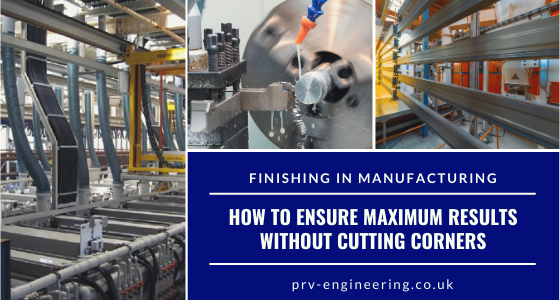In today’s competitive marketplace, many companies across industries face the same challenge: finding a reliable engineering partner that can deliver comprehensive, high-quality metal fabrication services. For businesses in sectors like aerospace, automotive, rail, and construction, a trusted UK engineering company that can handle everything from bespoke designs to large-scale production is invaluable. PRV Engineering is that partner.
Electroplating plays a critical role in the manufacturing processes across various industries. This intricate process involves the deposition of a thin metal layer onto the surface of a substrate, usually to enhance its properties, improve durability, or provide a specific aesthetic appeal. Electroplating is utilised in sectors ranging from automotive and aviation to electronics and energy, demonstrating its versatility and essential contribution to modern engineering.
Harnessing the Potential of Smart Factories in Custom Fabrication
In recent years, the manufacturing industry has experienced a significant transformation with the rise of smart factories. These future-ready production facilities are equipped with cutting-edge technologies such as artificial intelligence (AI), Internet of Things (IoT), robotics, and big data analytics. Smart factories are revolutionising the way products are fabricated, offering many advantages in terms of efficiency, customisation and cost-effectiveness. In this article, we take a closer look at the concept of smart factories and dive deeper into their potential to shape the future of custom fabrication.
Many custom fabrication projects are complex which may require a high level of expertise and attention to detail. From research and design to the final product, there are many variables to consider while keeping mind that even the smallest mistakes can have a significant impact on the end result. In this article, we will discuss 8 most common mistakes to avoid in custom fabrication projects with expert advice on how to ensure a successful outcome.
How Hydro-Abrasive Waterjet Cutting Compares to Traditional Methods
Hydro-abrasive waterjet cutting is a precision cutting technique that uses a high-pressure stream of water mixed with an abrasive substance to cut through materials. It is a versatile process that can be used to cut a wide range of materials, including metals, composites, glass, stone, and ceramics. In this article, we explore the advantages of this advanced process and some of its applications across various sectors.
Finding the right custom fabrication services provider for the aerospace sector can be challenging due to various factors. In many instances, a provider of custom fabrication services is chosen based on their ability to provide a low-cost solution. Although cost is a crucial component in the decision-making process, other considerations include the company’s overall capabilities, experience, and quality workmanship. Here, PRV takes a closer look at how aerospace companies can procure a fabrication expert.
CNC Waterjet cutting is a specialised manufacturing process that uses a high-pressure jet of water to cut or shape various types of materials. The power of the CNC waterjet cutting machine comes from a pressurising pump that uses a small precision nozzle. As the water exits the nozzle, it delivers a supersonic stream of water, about three times the speed of sound.
- 1
- 2











Recent Comments